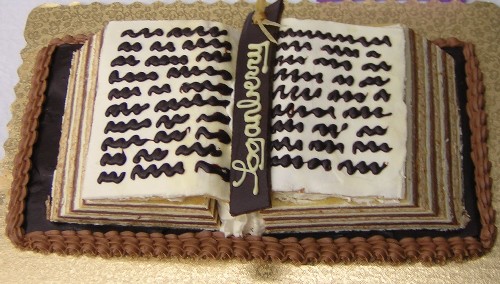Thursday, April 17, 2008
Torah Scrolls Stolen
Thursday, April 10, 2008
"WE THE PEOPLE" and Glenn Beck's Look at the U.S. Constitution
Step One: Admit we are not powerless.Claiming to know the framers' intentions is a common move in interpreting the Constitution. Beck's use of that move here is reminiscent of the second assumption of the four that James L. Kugel identifies as common among readers of the Bible in his How to Read the Bible: "Interpreters also assumed that the Bible was a book of lessons directed to readers in their own day. It may seem to talk about the past, but it is not fundamentally history." For Beck, the choice to magnify those first three words signals an important timelessness and relevance transcending the document's 18th-century definition of a nation.
Take a look at our Constitution. Not just a transcript; find an actual picture of it. The first three words, "We the People," are at least four times larger than the others. Do you think that was an accident? Of course not. Our framers chose those words, and made them that size, because they knew they were the answer to any problem we would ever face.
He is, however, curiously silent on the almost equally large "Article 1" that follows the Preamble.
Wednesday, April 9, 2008
Guru Granth's Anniversary Procession

To mark the 300th anniversary of the Sikh scripture later this year, an elaborate procession is traversing India. Large crowds come to catch a glimpse of an early hand-written copy of the Guru Granth carried in a glass-enclosed van. World Sikh News reports:
The historic march carrying the handwritten copy of Guru Granth Sahib scribed by Baba Deep Singh and the shastars (armory) of Guru Gobind Singh ji has the mission to spread the significance of the Shabad Guru concept from Nanded to the whole wide world. Traversing the length and breadth of India, the march has become a rallying point for Sikhs to focus on the upcoming celebrations.
Disposable Books

English Russia posts pictures of an abandoned library in Russia with the comment: "Years before, during the Soviet Rule, books were considered to be the greatest treasure. Children in schools were taught to treat the books with care and love. It seems now this doesn’t work. At least at some libraries."
The pictures find a broader context in a post-Soviet industrial wasteland on Trouble World. But it's the pictures of rooms full of discarded books that are catching blogger's attention (see here and here and here). With comments like "book graveyard" and "something is terribly wrong" in addition to English Russia's "greatest treasure ... care and love," they illustrate again the iconic status of books.
Tuesday, April 8, 2008
Favorites vs. Best Sellers
It's interesting that when people think of their "favorite books," they think of scripture and novels. Sales figures suggest that they actually buy a much wider range of genres. Wikipedia's list of all-time best sellers ("most published" would be more accurate, since many of these are often given away) also starts with the Bible, but novels have to compete for space in the rest of the list not only with other scriptures (unlike the Harris Poll, this list attempts to span the globe) but also with prayer books, scouting manuals, dictionaries, etc. Wikipedia's list unaccountably omits cookbooks, which are perennial sales leaders.
The difference between "favorites" and best sellers points again to the relative iconicity of different kinds of books. Scriptures and novels have the most iconic status, while handbooks, dictionaries, and especially phone books may have little or virtually none.
Friday, April 4, 2008
Book Cart Art?

Book art we know about, but now there's book cart art. Unshelved presents the second annual "pimp my bookcart" competition winners.
Tuesday, April 1, 2008
April 1: Edible Book Festivals!

Since 1999, April 1st has been celebrated by increasing numbers of libraries and bookstores with "Edible Book Festivals." According to International Edible Books Festival, the date was chosen because:
April 1st is the birthday of French gastronome Jean-Anthelme Brillat-Savarin (1755-1826), famous for his book Physiologie du goût, a witty meditation on food. April fools' day is also the perfect day to eat your words and play with them as the "books" are consumed on the day of the event. This ephemeral global banquet, in which anyone can participate, is shared by all on the internet and allows everyone to preserve and discover unique bookish nourishments. This festival is a celebration of the ingestion of culture and a way to concretely share a book; it is also a deeper reflexion on our attachment to food and our cultural differences.
I have not found sites posting pictures of this year's entries yet, but for past years' constructions, among many others see:





